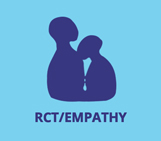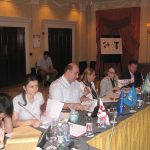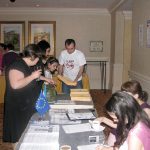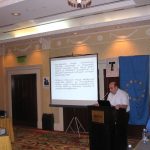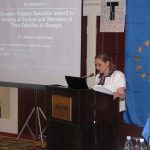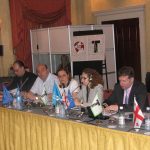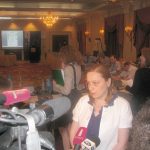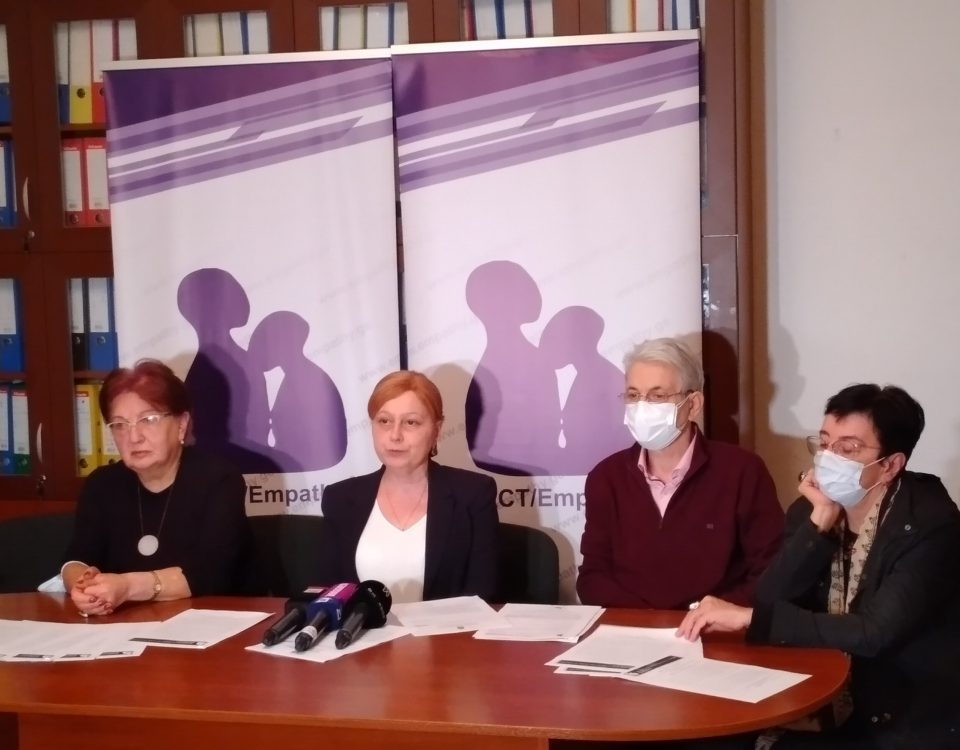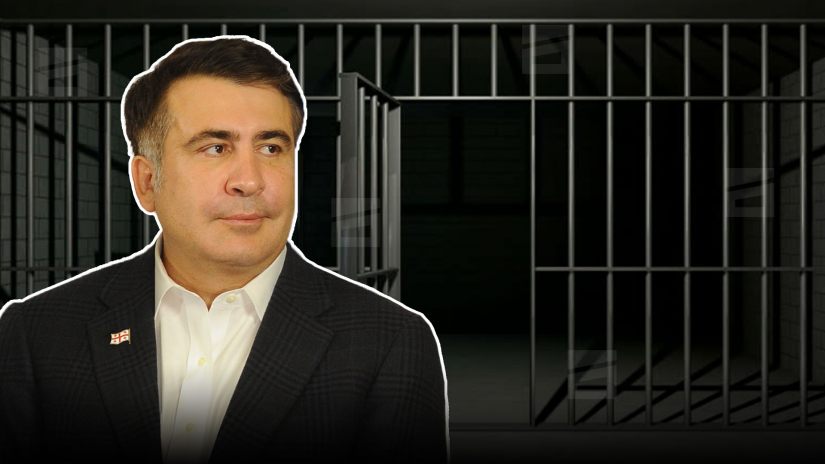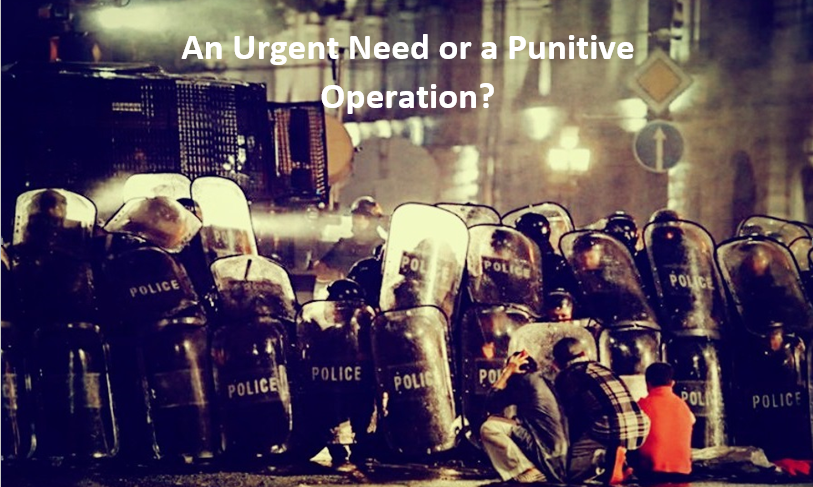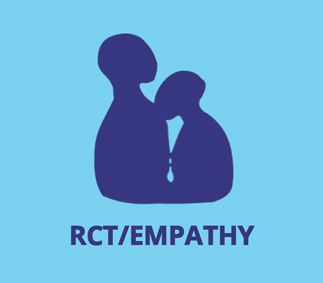- Hot Line
- + 995 599 88 54 68
- + 995 599 88 54 28

Crisis intervention and Monitoring programme
January 7, 2009Strengthening the System of Rehabilitation for Torture Victims in Georgia
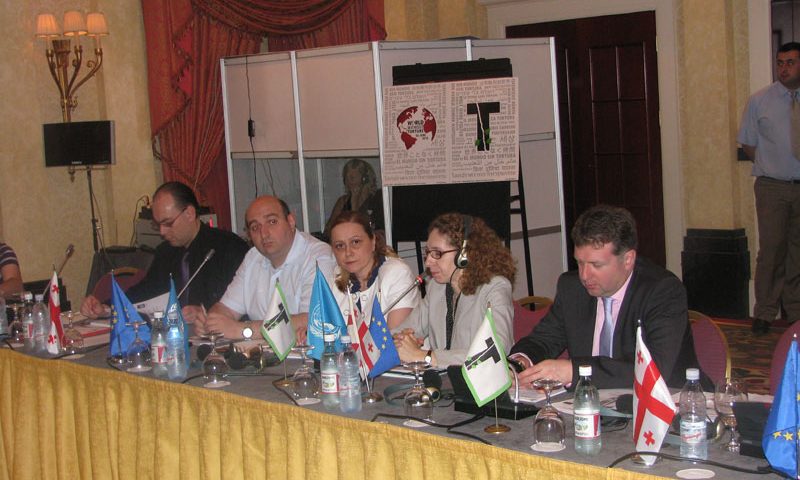
Title of the Project of the RCT/EMAPTHY, Georgia (EIDHR/2008/148 – 184): Strengthening the System of Rehabilitation for Torture Victims in Georgia.
Project Period: From January 1, 2009 till December 31, 2011.
Donor Organizations: European Union, UNVFVT, IRCT.
Summary of the Programme
Overall objectives of this proposal is: (1) to strengthen the existing non-governmental, nationwide system focusing on complex, based on multi disciplinary approach (medical, mental/psychological, social and legal redress, forensic medical expertise according to the Istanbul Protocol Principles), rehabilitation for torture victims in Georgia; (2) To increase effectiveness of services, monitoring and evaluation measures; (3) To implement international standards on prevention of torture in Georgia. To implement Istanbul Protocol Principles; UN CAT Articles: Article 1, Article 10, Article 11 – 12, Article 14, Article 16; to provide support for implementation of the UN OP CAT, WMA Declaration adopted by the WMA General Assembly in Copenhagen in 2007, regarding doctor’s obligations to document cases of torture according to the Istanbul Protocol.
(4) The program main component is also focused on skills-based training, educational and research programme on Documentation and Prevention of Torture, as well as on rehabilitation, awareness building, and institutional capacity building of EMPATHY and Partners (especially Crisis intervention Centre in Military Conflict Zone in Abkhazia).
Specific Objectives: (1) Micro level: For target groups: to provide adequate treatment and rehabilitation, social and legal support to restore their rights to legal redress and compensation; (2) On mezzo level: to strengthen non – governmental comprehensive multi faced rehabilitation system established by the RCT/EMPATHY during the ongoing and previous projects and increasing of effectiveness of the services and offices of the RCT/EMPATHY and other involved in the action professional and non – professional stakeholders; (3) On macro level: project will focused on development of the training – educational, research and lobbing activities and will make significant contribution on the fight against torture in Georgia and in development of the rehabilitation and torture documentation standards in generally, especially, in whole South Caucasian Region.
Unique to any other program in the FSU, (1) this program will include rehabilitation efforts for victims who are still inside the penitentiary system, (2) Providing the Independent Medical and Psychological Forensic Expertise for documenting of torture cases for submitting to the Courts; (3) Hot line and reacting mobile group activities in high risk settings (4) Project will be implemented at the Military Conflict Zone; (5) Specific Training – Educational programme based on international standards of rehabilitation and prevention of torture is ready on Georgian and Russian Languages for several target groups: Doctors (Prison Doctors, Forensic Doctors, Psychiatrists, Physicians, Surgeries); Legal Experts and Human Rights Defenders.
Main Target Groups includes, but not limited:: (1) Detainees and former detainees; (2) IDPs from military conflict regions (Abkhazia and South Ossetia); (3) Refugees from Chechnya; (4) Asylum seekers from Chechnya or other countries (Sri Lanka, Uzbekistan etc);Specific vulnerable groups: (5) civilian population still living in the military conflict zones; special attention will be paid to women and children; Special vulnerable group includes (6)) Juveniles and children with imprisonment experience or sentenced and remanded prisoners, probationers and former prisoners with experience of torture and ill treatment, especially with sexual abuse and harassment; Children with experience of violence in orphans houses, schools etc. (7) State political repression victims, from soviet time, including second generation, victims of civil war in Georgia and current state abuse victims. (8) Special attention should be paid to the prisoners with severe mental problems; Family members of the direct target groups are included in the services too. For the training activities will be the doctors “at risk” (including doctors from whole South Caucasian Region, including Armenia and Azerbaijan) and representatives of the law enforcement structures and judges;Estimated number of direct beneficiaries – 500 per year; total number 1500; # of beneficiaries for training programme – 150 persons (Doctors, Legal representatives, client advocacy groups etc).
Expected Results includes, but not limited: (1) The innovative model of the independent national wide system of rehabilitation and prevention of torture existing in Georgia with all components can be reduplicated in all NIS and other European neighborhood countries (2)An independent medical expertise will be set up and will be used by the lawyers for the documentation of torture cases and for the improvement of restoration of victims rights to legal redress.(3) several models of curriculum for students and residents, for CME/CPD will be Developed and will be reduplicated;.(4) Victims of torture and their family members will be involved in the program activities and receive a high level professional care;.(5)The standardized diagnostics, monitoring and evaluation system and methodology will be strengthened; level of involvement of different kind of professionals in the torture victims’ rehabilitation and protection activities will be increased. (6) The program will provide opportunities for positive changes on the policy level, including the health care reform, prison reform, implementation of the UN OP CAT and CAT articles in Georgia; implementation of Istanbul Protocol and WMA resent Resolution, not only in Georgia, but in other Countries and military regions of South Caucasus.
Main activities: Includes but not limited: (1) Multi – profile treatment and rehabilitation of torture victims in Georgia, both long term and short term; (2); Development of the legal Department and Forensic Medicine Department; (3) Mobile group and Crisis Intervention Department (in military conflict regions and in pre – trial prisons)). (4) The special duty doctors department with “hot line” service; (5) Development of the training – educational and research programme (Regional Training – Research Centre); (6) Public awareness, other torture prevention activities.
List of Branches and Department:
Offices:
1) Head Office (rented and equipped) – The Rehabilitation Centre for Victims of Torture in Tbilisi
Address: 23 Kandelaki Str., 0160, Tbilisi, Georgia.
Phone: + (995 32) 38 10 15
Fax: + (995 32) 38 10 33
E – Mail: centre@empathy.ge
URL: www.empathy.ge
Working Hours:
9:30. – 18:30.
Duty Doctors 24 hours Position with “Hot Line” Service.
“Hot Line” Phone: +(995 32) 48 23 15 and Crisis Intervention Programme (Covered monitoring missions in penal system and other high risk settings and zones)
Branch Offices:
2) Military Conflict Zone in Georgia/Abkhazia – Gali Region – Crisis Intervention Centre;
3) The Rehabilitation Centre in Women Colony/Prison in Tbilisi
4) The Rehabilitation Centre in Juvenile Colony/Prison in Tbilisi
5) Crisis Intervention Centre in Juveniles Pre – Trial Prison
6) Art Studio
Departments:
1) Administrative Department
2) Training – Research Department
3) Treatment and Rehabilitation Department
4) Forensic Expertise (Medical and Psychiatric/Psychological) Department
5) Legal Department
6) Crisis Intervention and “Hot Line” Department
Services:
- Medical
- Psychiatric
- Psychotherapy (Individual, Group and Family)
- Art Therapy and art work
- Public – educational group therapy with using the movies or drama therapy
- Physiotherapy,Laser therapy and Acupuncture ,
- Counseling
- Community visits
- Referrals
- Financial assistance (support for travel and accommodation for outpatient type treatment for VT)
- Social welfare
- family – based treatment
- Psychological
- Legal Assistance and Client advocacy
- Centre is providing independent forensic expertise, medical and psychiatric/psychological, in accordance with Istanbul Protocol.
- “Hot Line” – for immediate response and crisis intervention.
- Training – educational and research programme
